Filter by
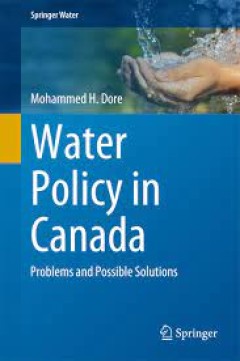
Water Policy in Canada Problems and Possible Solutions
This book deals with the water policy and management in Canada. It discusses various problems and risks in the fresh and drinking water supply in the second largest country in the world. Mohammed Dore argues that water is underpriced and used wastefully in Canada. In selected case studies, he illustrates the major threats from human activity to Canadian freshwaters and drinking water resources,…
- Edition
- -
- ISBN/ISSN
- 978-3-319-15883-9
- Collation
- XX, 327
- Series Title
- -
- Call Number
- -
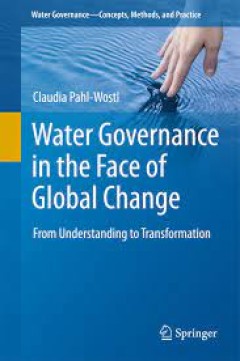
Water Governance in the Face of Global Change From Understanding to Transfor…
This book offers the first comprehensive treatment of multi-level water governance, developing a conceptual and analytical framework that captures the complexity of real water governance systems while also introducing different approaches to comparative analysis. Applications illustrate how the ostensibly conflicting goals of deriving general principles and of taking context-specific factors in…
- Edition
- -
- ISBN/ISSN
- 978-3-319-21855-7
- Collation
- XV, 287
- Series Title
- -
- Call Number
- -
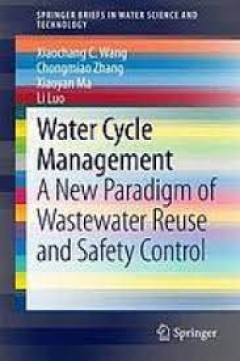
Water Cycle Management A New Paradigm of Wastewater Reuse and Safety Control
This book focuses on environmental engineering, and on wastewater treatment and reuse in particular, which is a vital aspect for countries and regions suffering from water shortages. It introduces a new water cycle management concept for designing water systems that mimic the hydrological cycle, where reclaimed water is produced, stored/regulated, supplied and used in a semi-natural manner so t…
- Edition
- -
- ISBN/ISSN
- 978-3-662-45821-1
- Collation
- VIII, 98
- Series Title
- -
- Call Number
- -
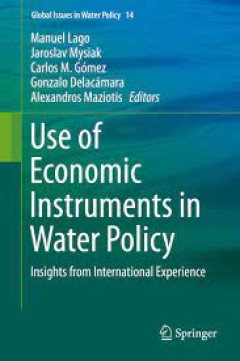
Use of Economic Instruments in Water Policy Insights from International Expe…
This book assesses both the effectiveness and efficiency of implemented Economic Policy Instruments (EPIs) in order to achieve water policy goals and identifies the preconditions under which they outperform alternative (e.g. regulatory) policy instruments and/or can complement them as part of complex policy mixes. The development of a consolidated assessment framework helps clarify (and where p…
- Edition
- -
- ISBN/ISSN
- 978-3-319-18287-2
- Collation
- 4 b/w illustrations, 42 illustrations in colour
- Series Title
- -
- Call Number
- -

Drinking water minerals and mineral balance : importance, health significance…
Following the successful first edition of this book on drinking water quality and health, this new edition puts more focus on the importance of minerals in drinking water. It includes new scientific material and presents additional studies on the negative health effects of reverse osmosis water. The various safety organizations working on drinking water all warn about unhealthy constituents, as…
- Edition
- -
- ISBN/ISSN
- 9783030180348
- Collation
- 184 pages
- Series Title
- -
- Call Number
- 628.1

Mountain, Water, Rock, God . Understanding Kedarnath in the Twenty-First Century
Mountain, Water, Rock, God, Luke Whitmore situates the disastrous flooding that fell on the Hindu Himalayan shrine of Kedarnath in 2013 within a broader religious and ecological context. Whitmore explores the longer story of this powerful realm of the Hindu god Shiva through a holistic theoretical perspective that integrates phenomenological and systems-based approaches to the study of religion…
- Edition
- -
- ISBN/ISSN
- 9780520298026
- Collation
- -
- Series Title
- -
- Call Number
- 551.432 WHI m

Water Distribution Operator II
Pipeline projects can be small jobs requiring only a few sticks of pipe. Or, they can be extensive jobs covering several miles or more. Regardless of the size of the job, it is important to properly plan. Preparing the pipe at the job site is an important aspect of job preparation. The pipe should be placed as close to the trench as possible. This makes it easier for the pipe to be accessed a…
- Edition
- -
- ISBN/ISSN
- -
- Collation
- -
- Series Title
- -
- Call Number
- 627 ALV w
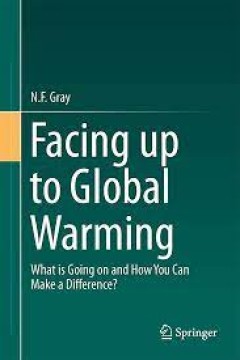
Facing Up to Global Warming What is Going on and How You Can Make a Difference?
In this volume, Professor N.F. Gray offers a comprehensive primer on climate change, sustainability, and how the two concepts are related. This book consists of fifteen chapters, each treating a specific aspect of the current global crisis, including scientific background as well as an up to date appraisal of the issue at hand. It covers the reasons behind climate change and the effect it will …
- Edition
- -
- ISBN/ISSN
- 978-3-319-20146-7
- Collation
- 28 b/w illustrations, 155 illustrations in colour
- Series Title
- -
- Call Number
- -
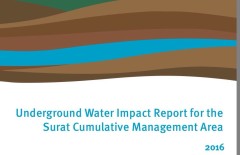
Underground Water Impact Report for the Surat Cumulative Management Area
Petroleum is a legislative term that includes oil, conventional gas and coal seam gas (CSG). However, the general term ‘petroleum and gas’ is often used to refer to both liquid petroleum and gaseous petroleum. The Petroleum and Gas (Production and Safety) Act 2004 and the Petroleum Act 1923 (collectively referred to here as the P&G Acts) authorise petroleum tenure holders to undertake ac…
- Edition
- -
- ISBN/ISSN
- -
- Collation
- -
- Series Title
- -
- Call Number
- 500 OFF u
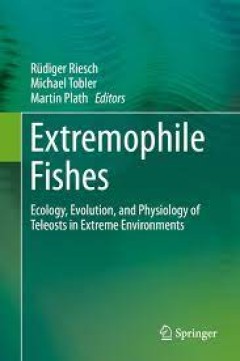
Extremophile Fishes Ecology, Evolution, and Physiology of Teleosts in Extrem…
This book summarizes the key adaptations enabling extremophile fishes to survive under harsh environmental conditions. It reviews the most recent research on acidic, Antarctic, cave, desert, hypersaline, hypoxic, temporary, and fast-flowing habitats, as well as naturally and anthropogenically toxic waters, while pointing out generalities that are evident across different study systems. Knowledg…
- Edition
- -
- ISBN/ISSN
- 978-3-319-13362-1
- Collation
- 14 b/w illustrations, 16 illustrations in colour
- Series Title
- -
- Call Number
- -
 Computer Science, Information & General Works
Computer Science, Information & General Works  Philosophy & Psychology
Philosophy & Psychology  Religion
Religion  Social Sciences
Social Sciences  Language
Language  Pure Science
Pure Science  Applied Sciences
Applied Sciences  Art & Recreation
Art & Recreation  Literature
Literature  History & Geography
History & Geography